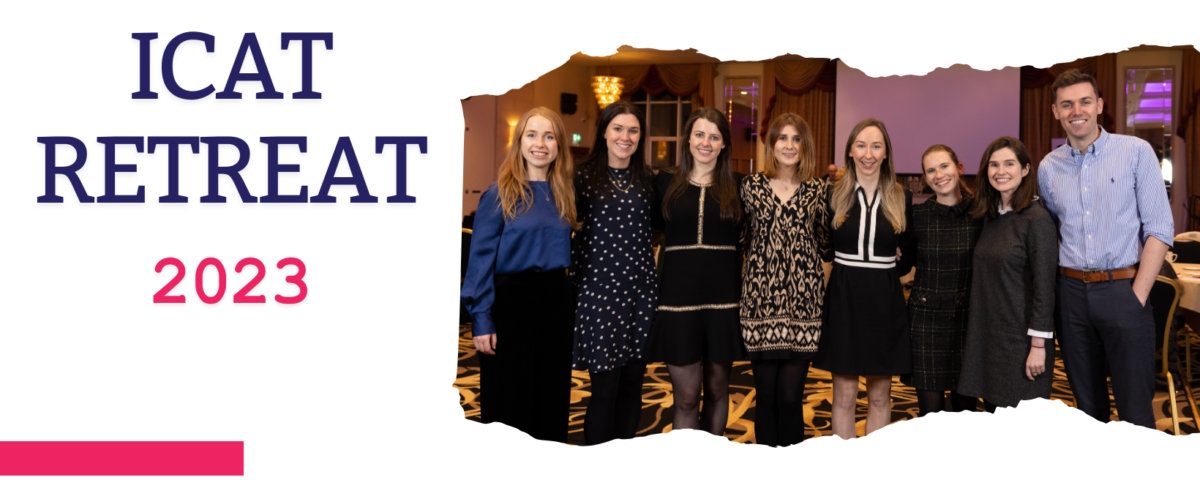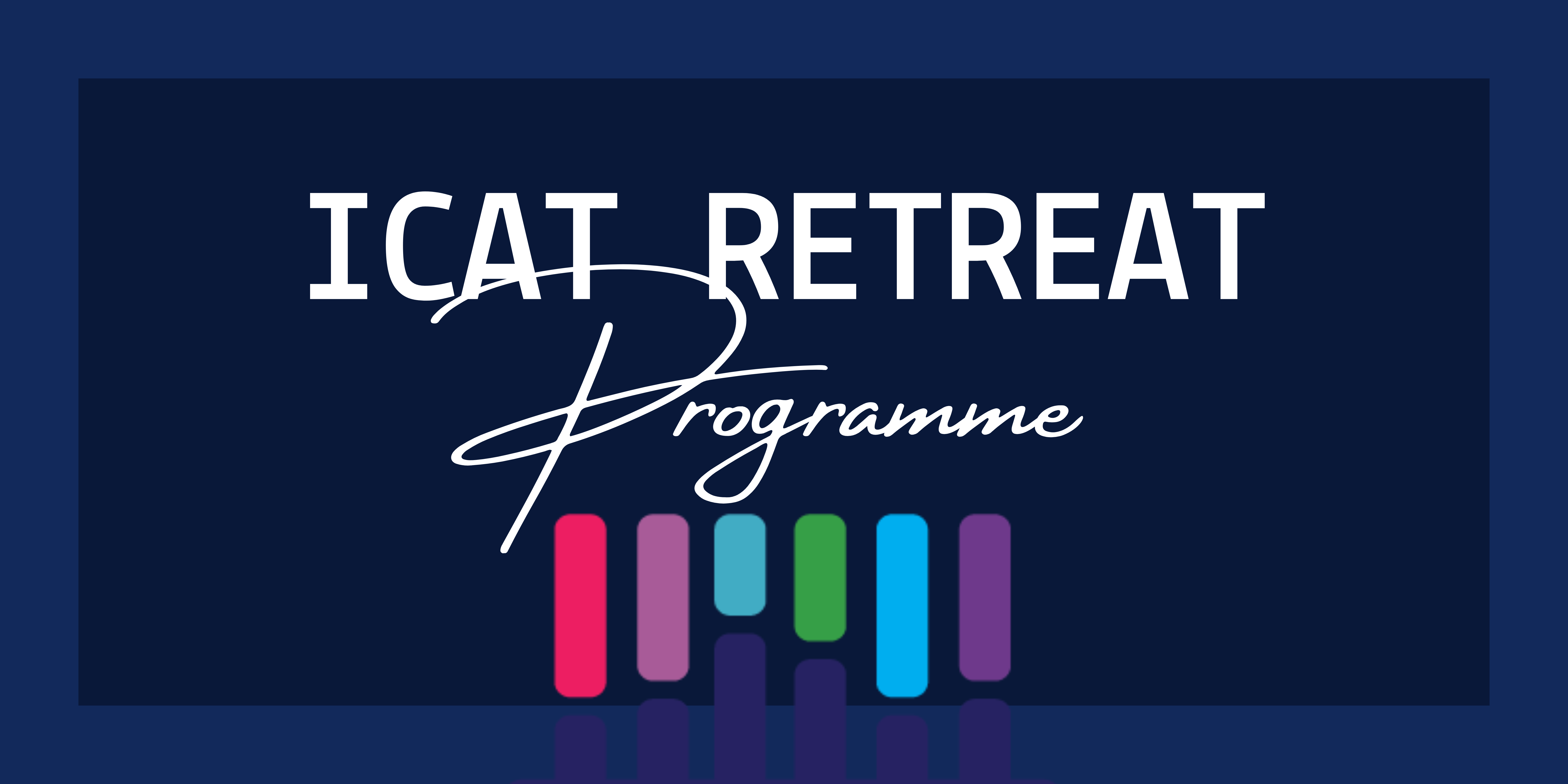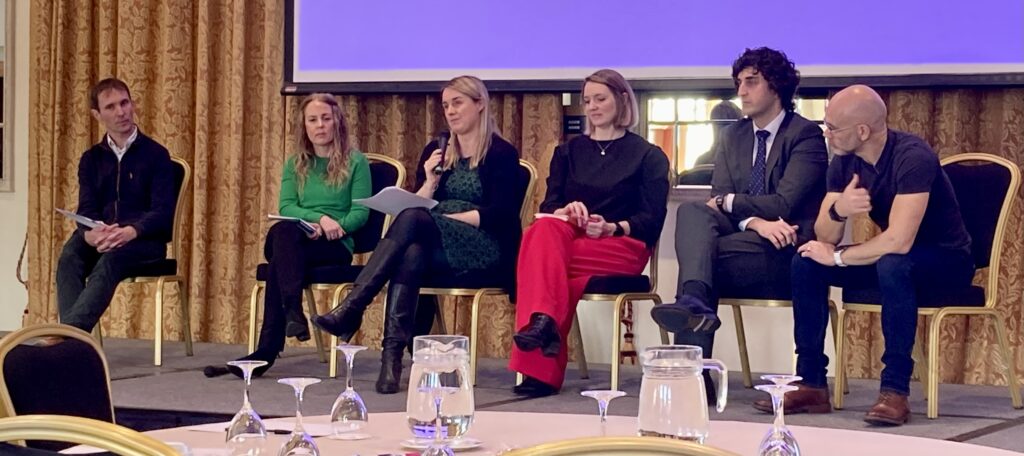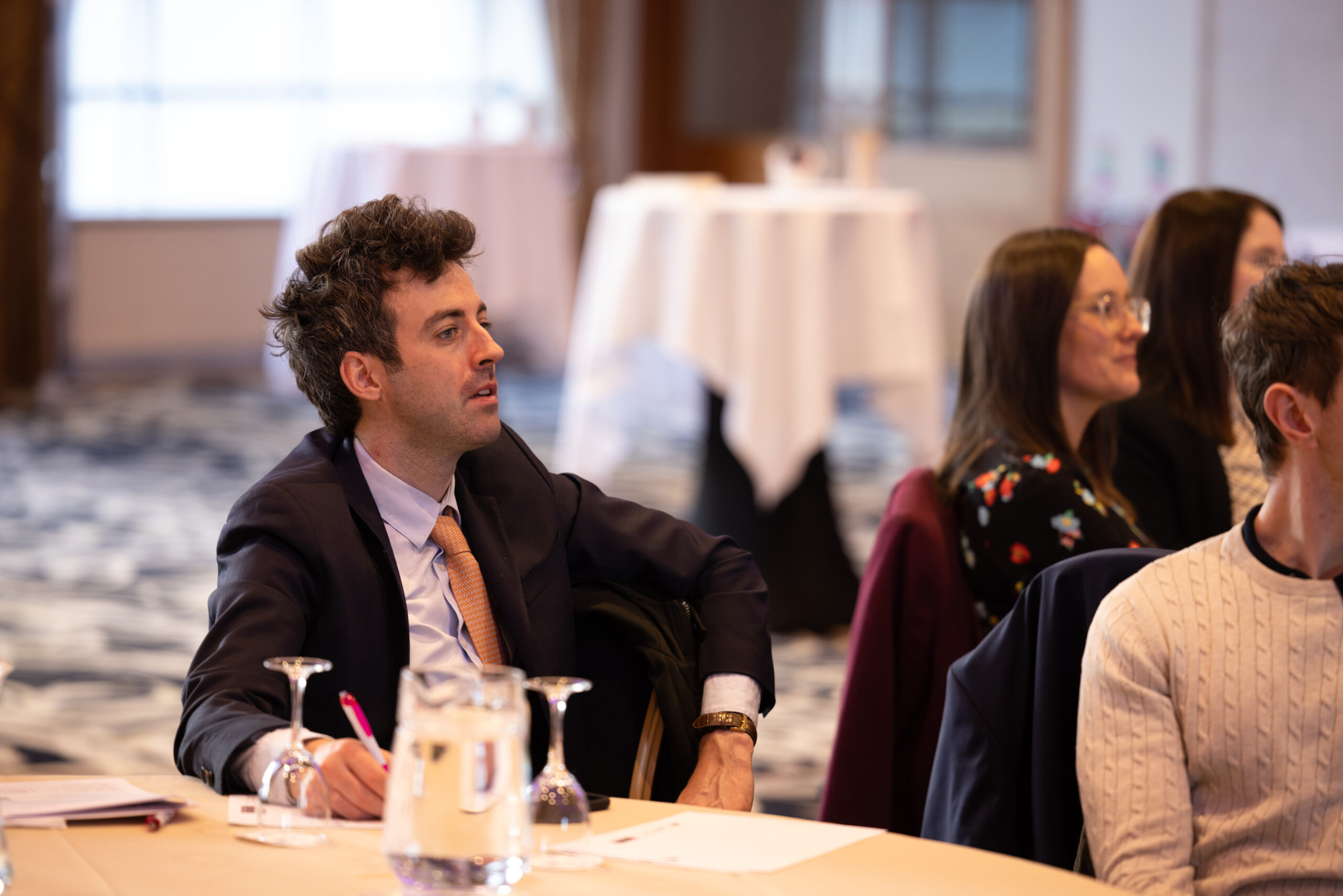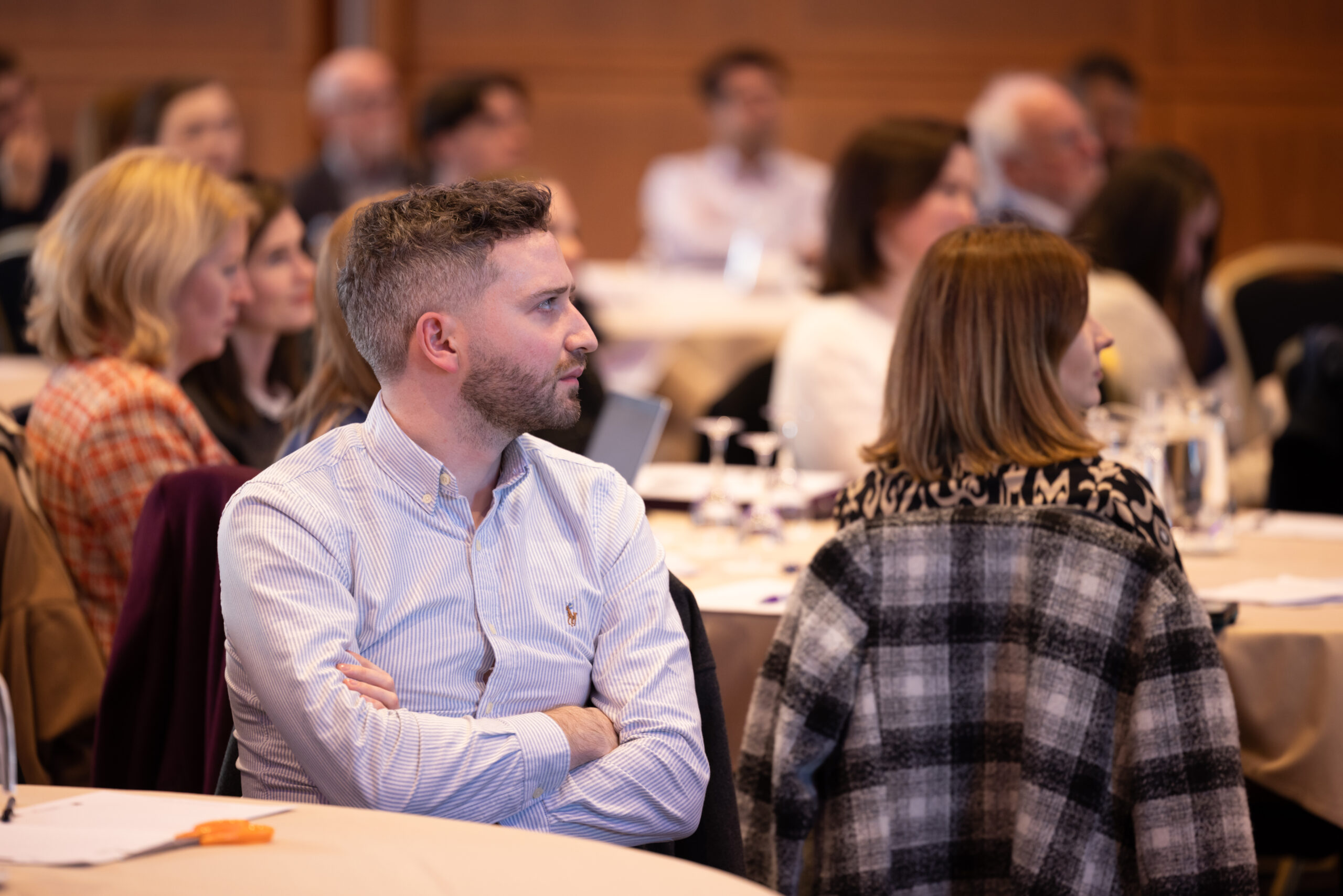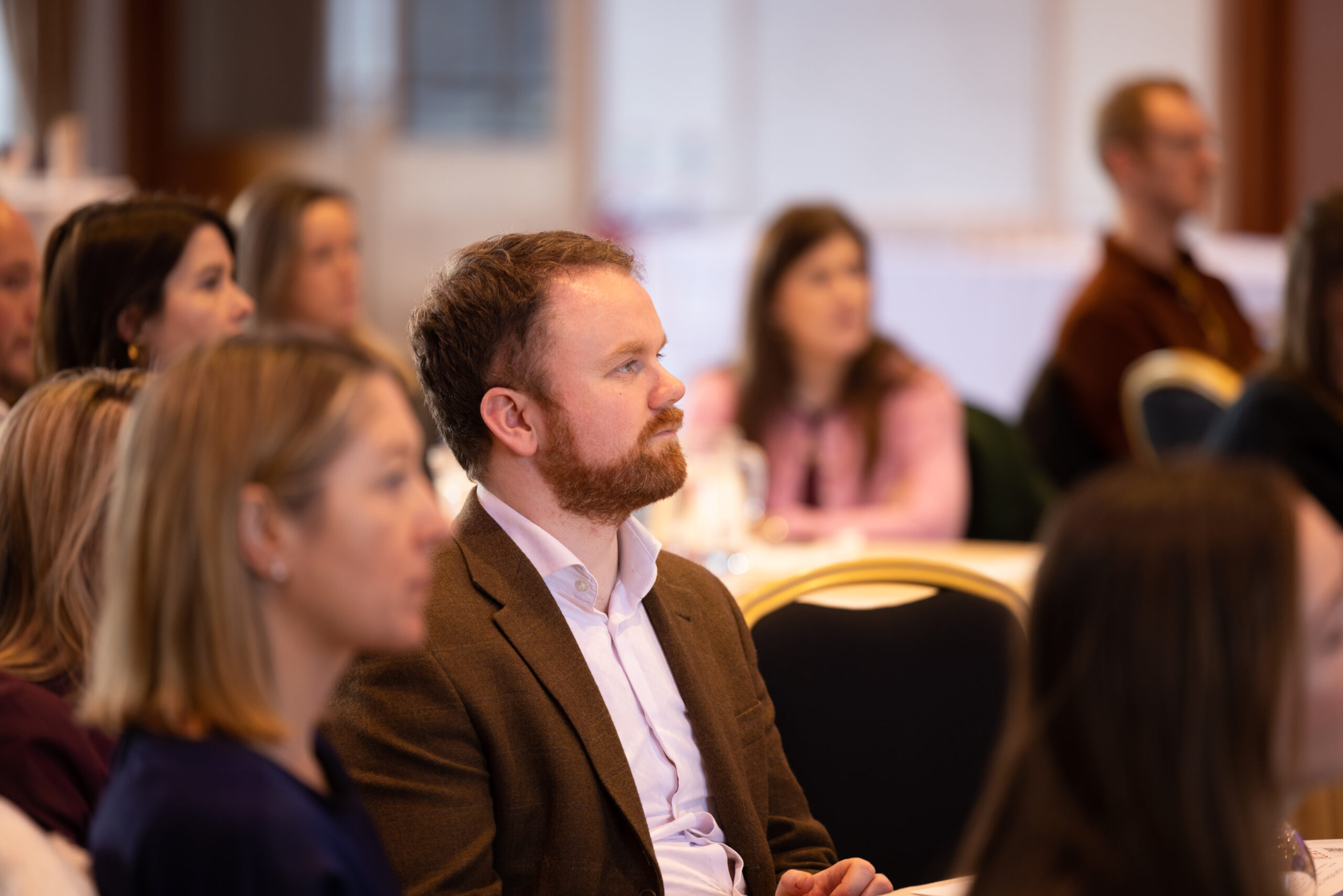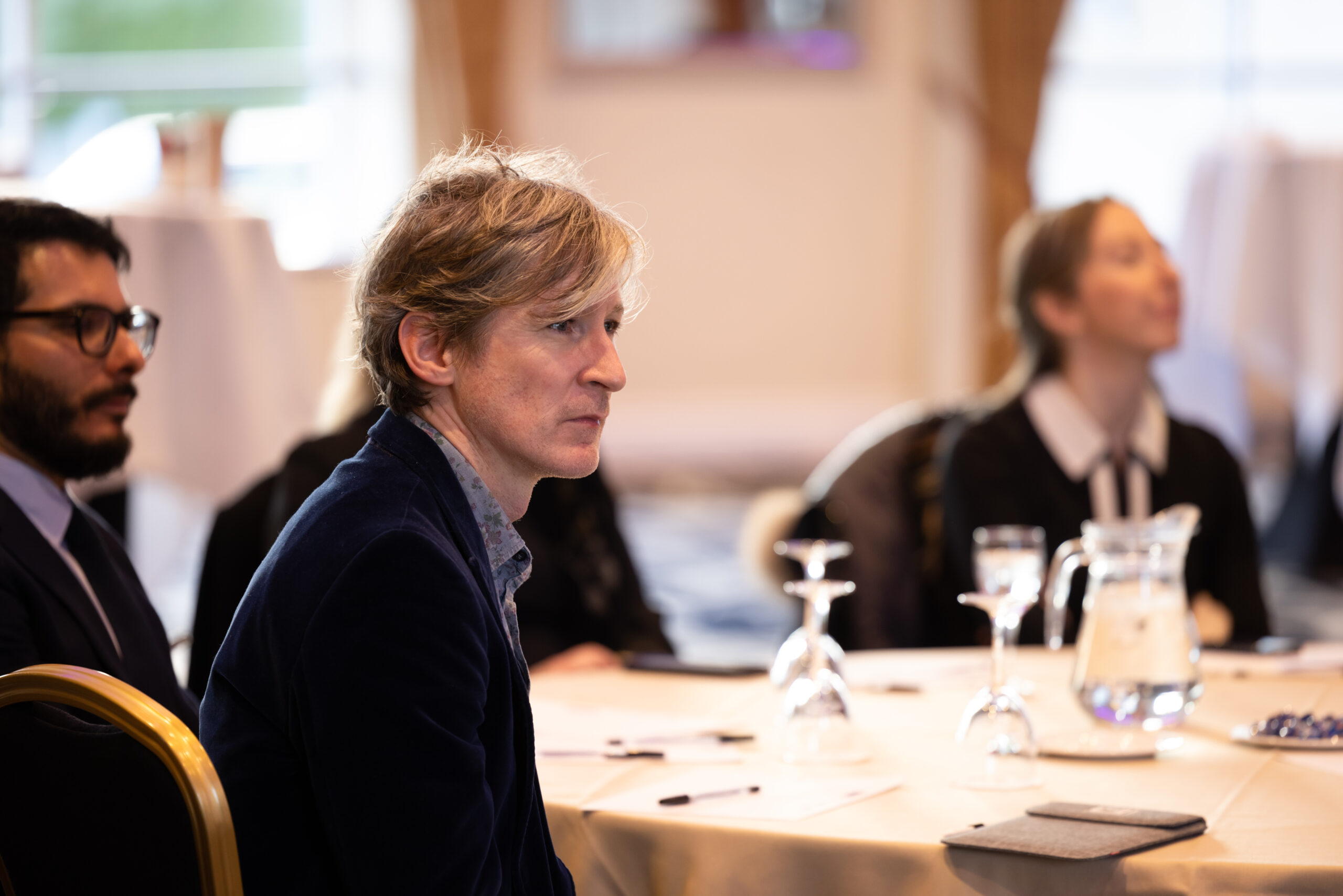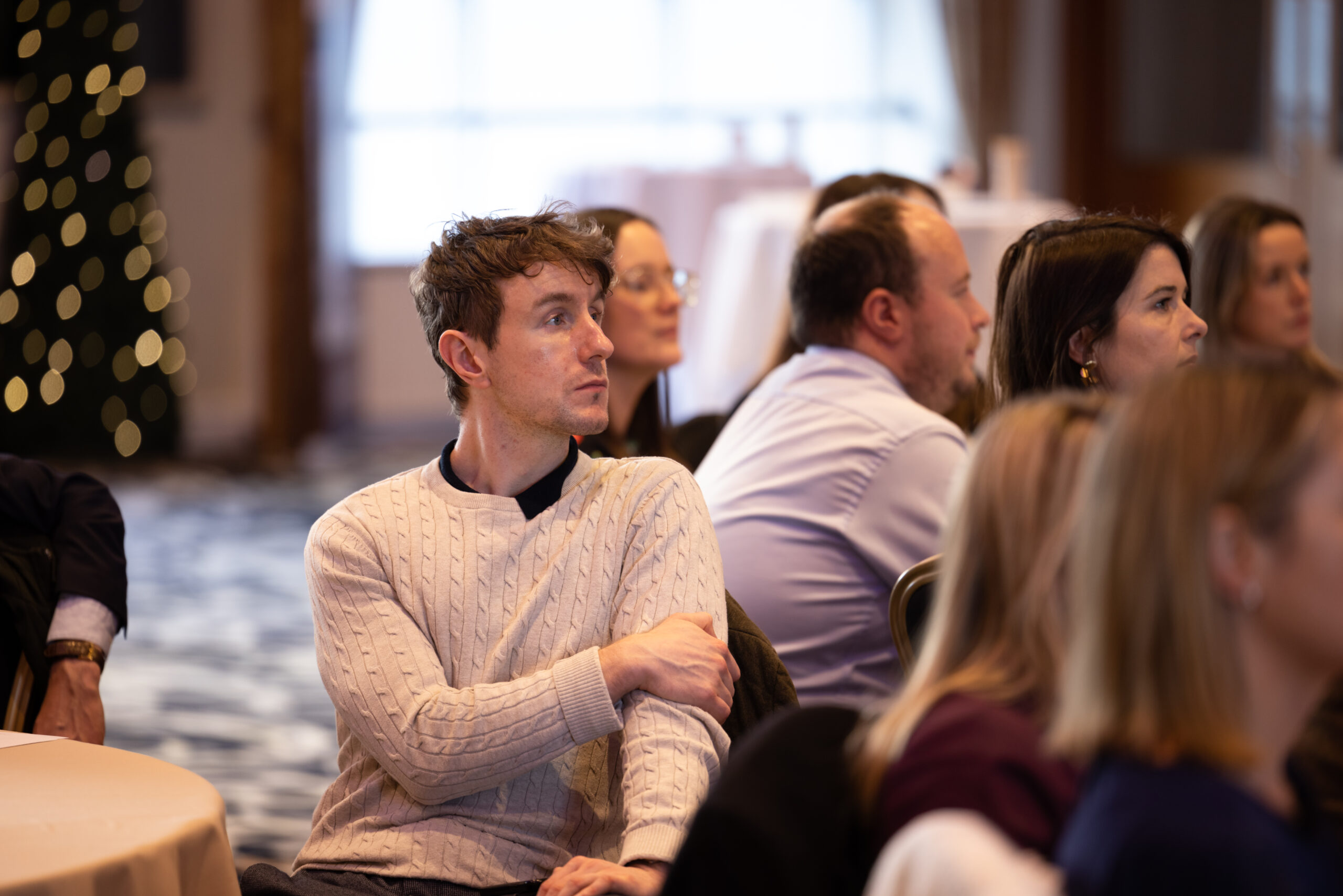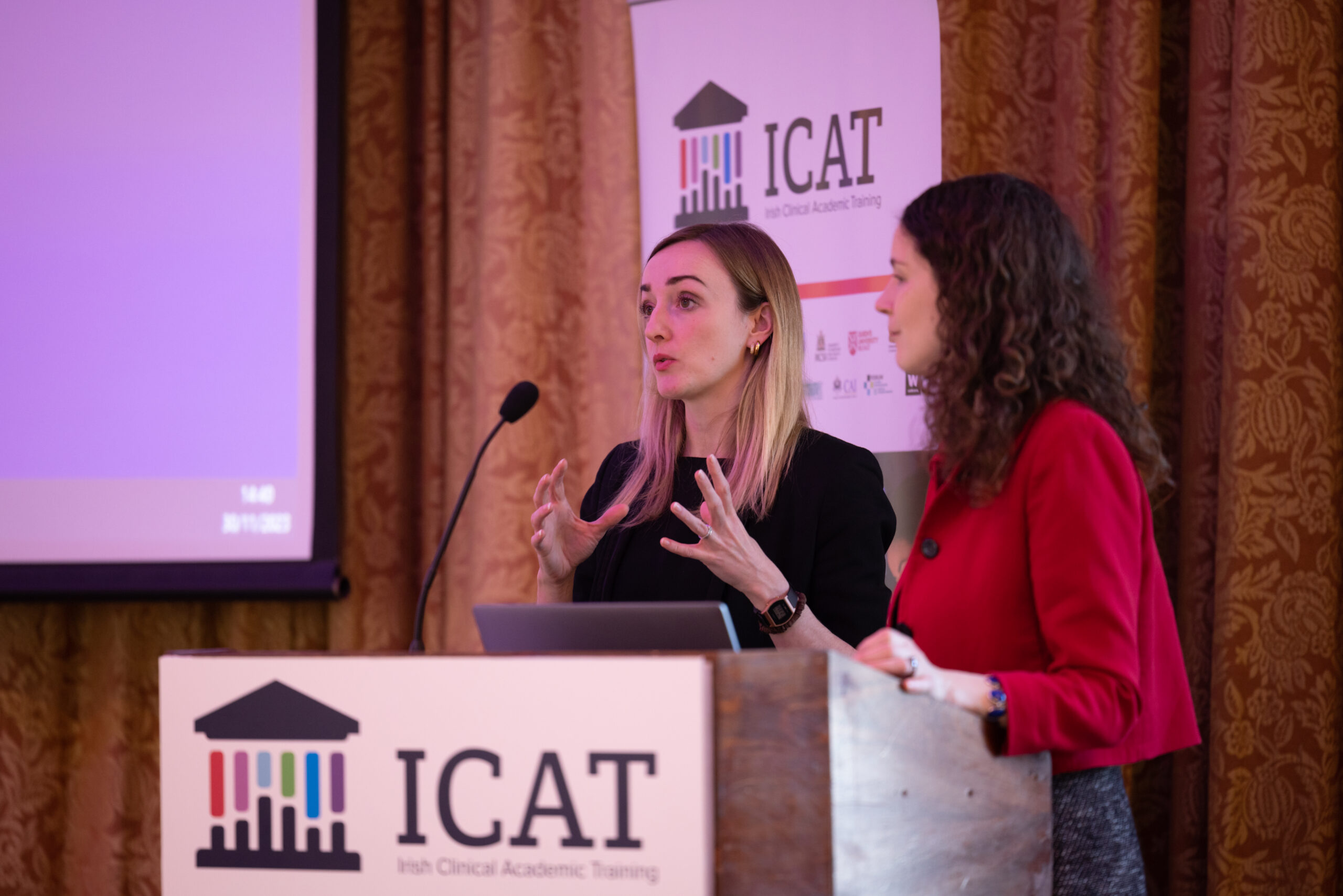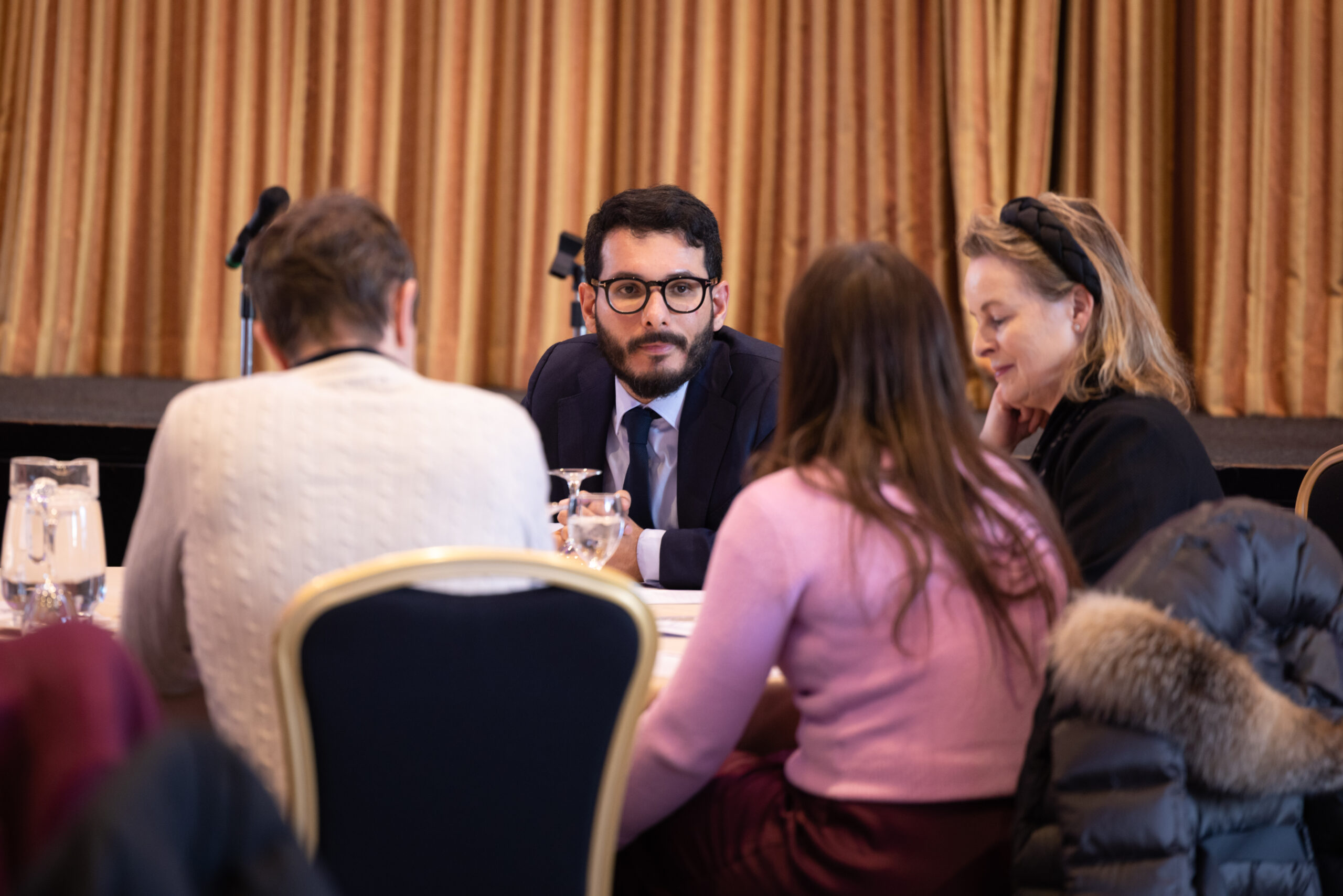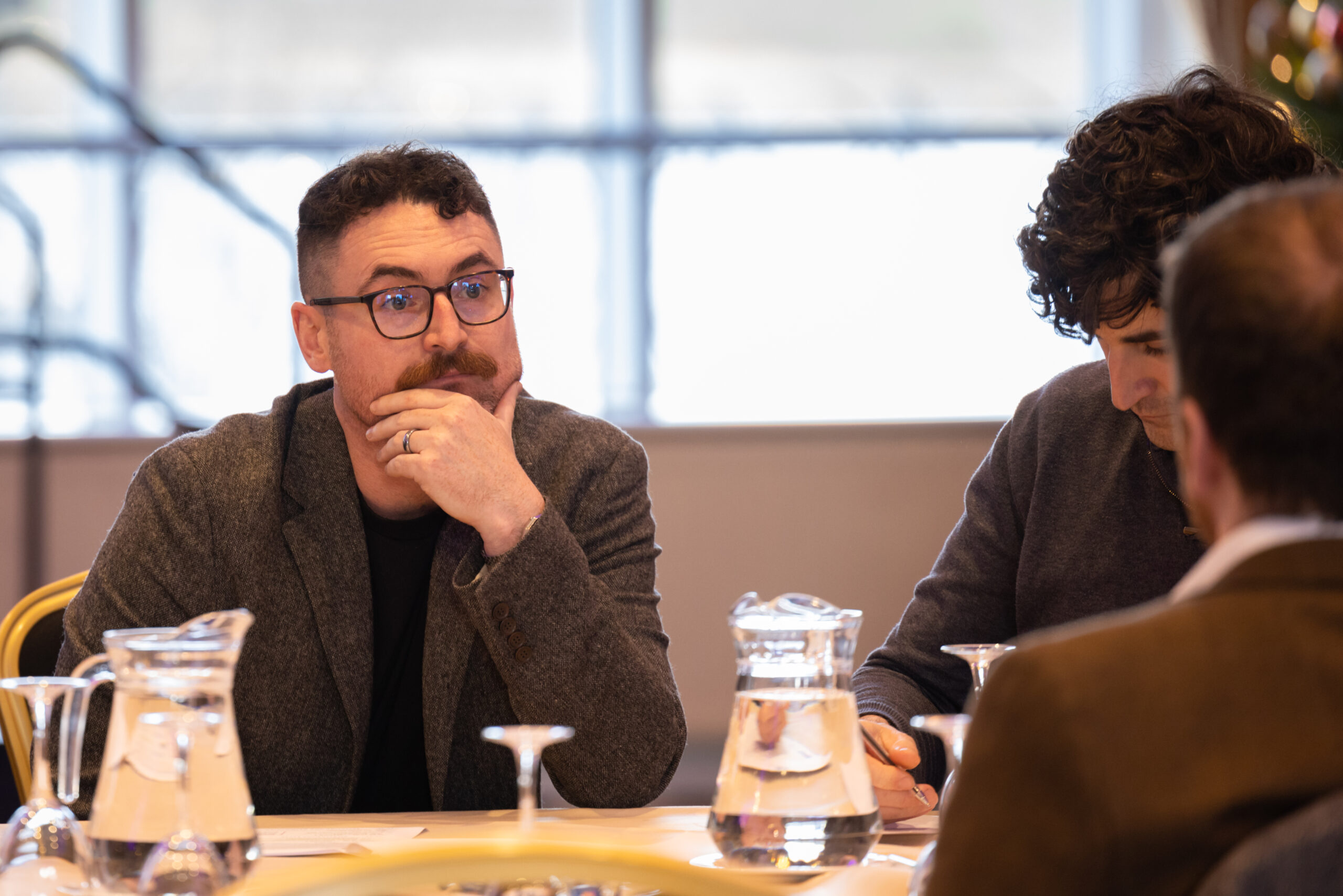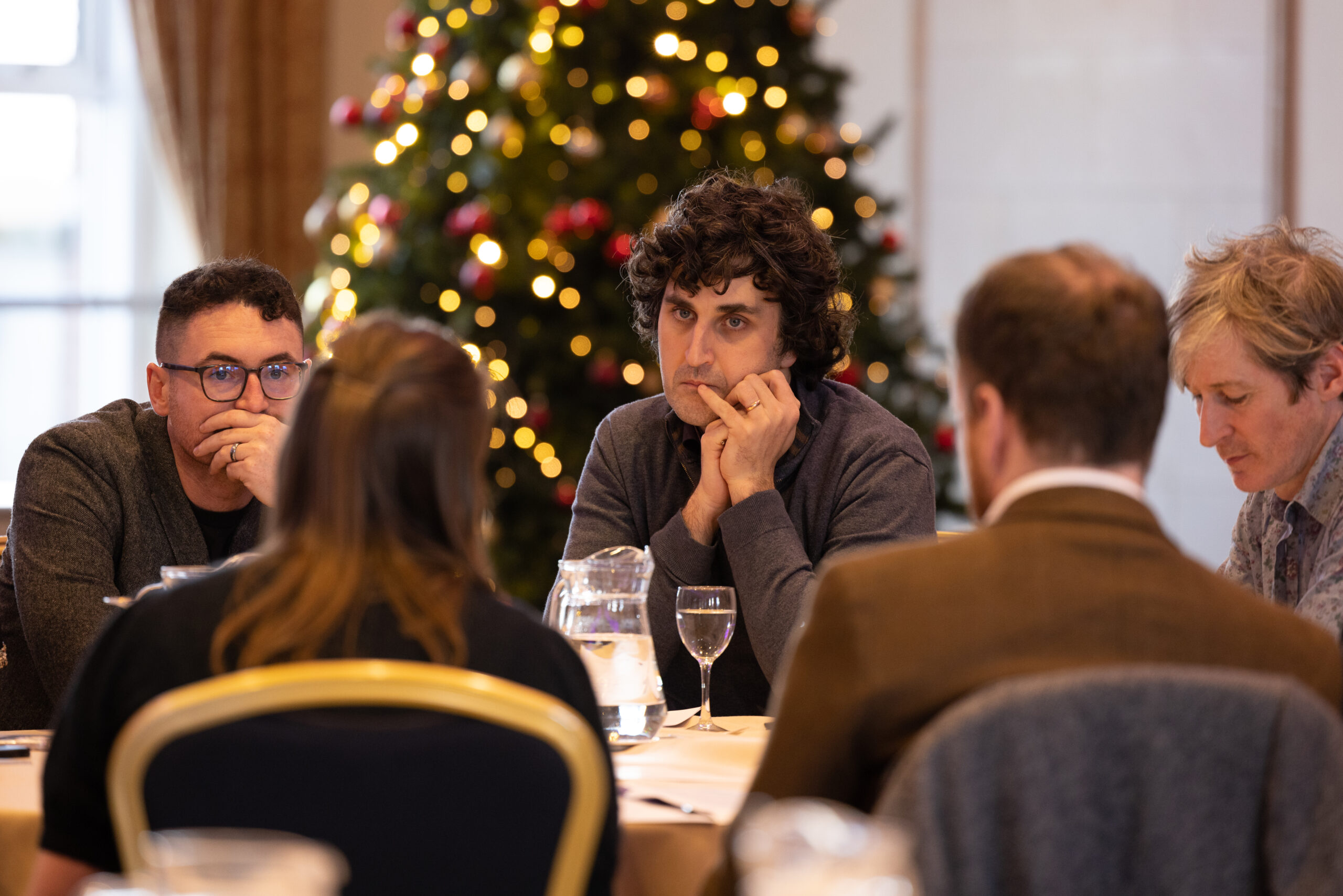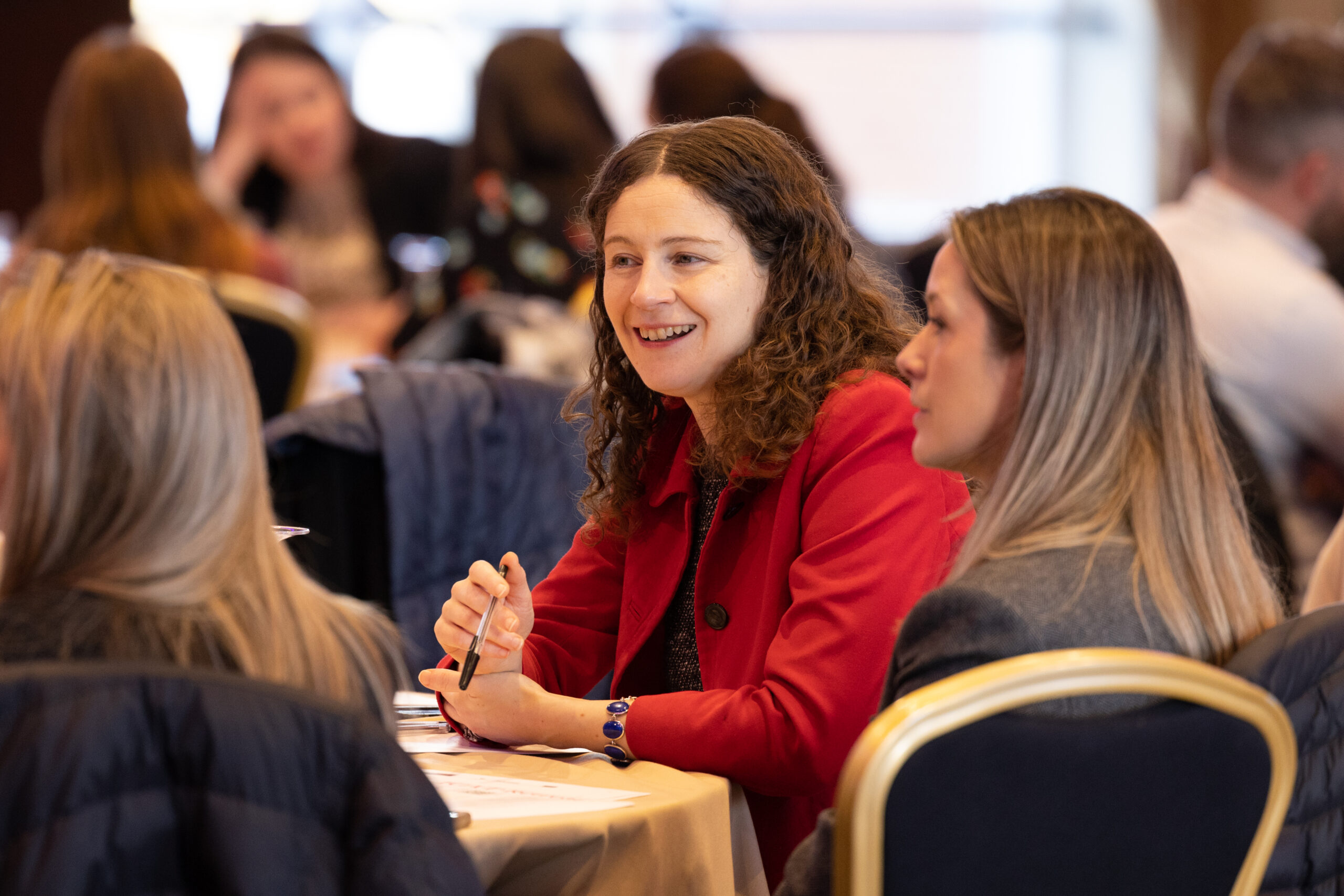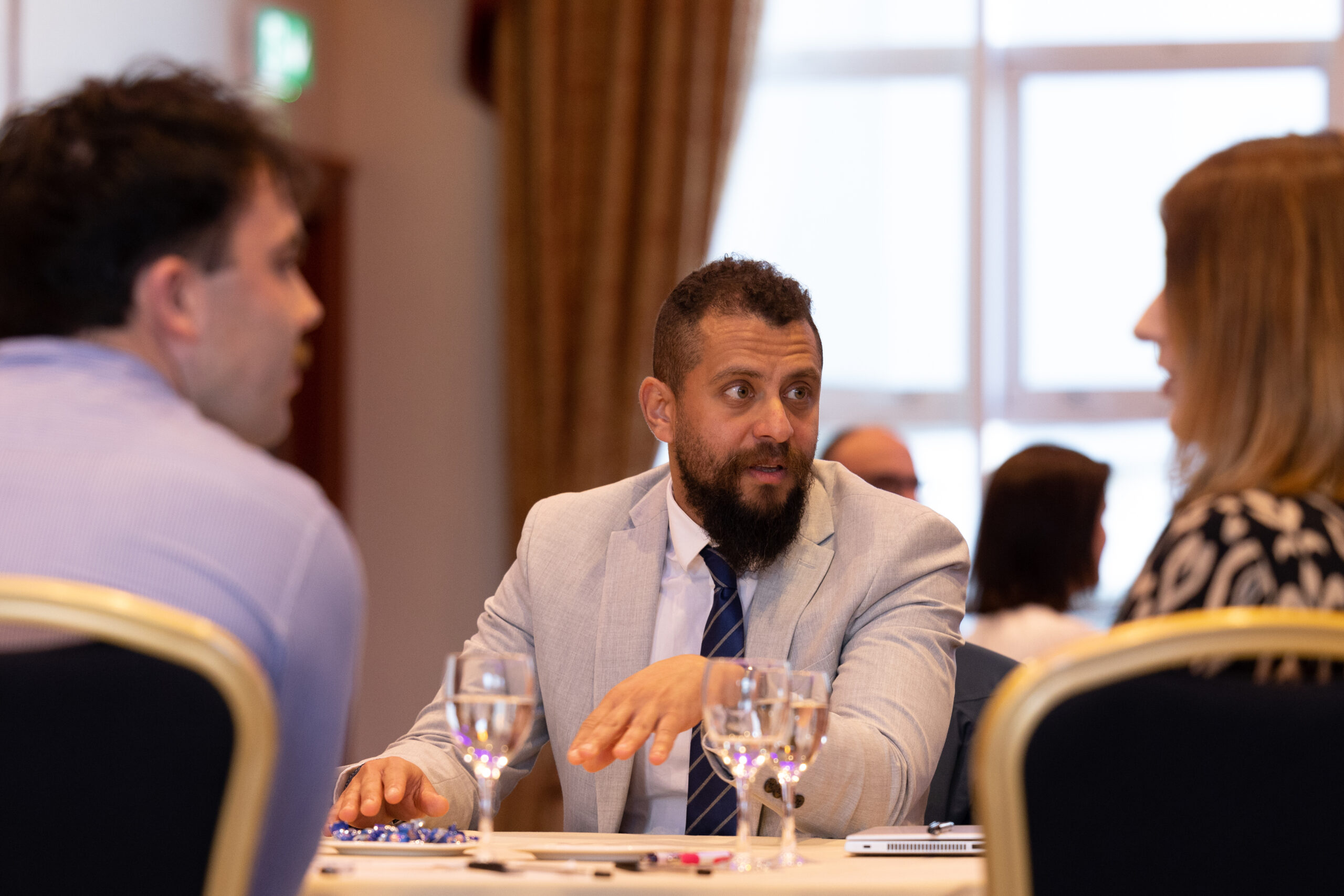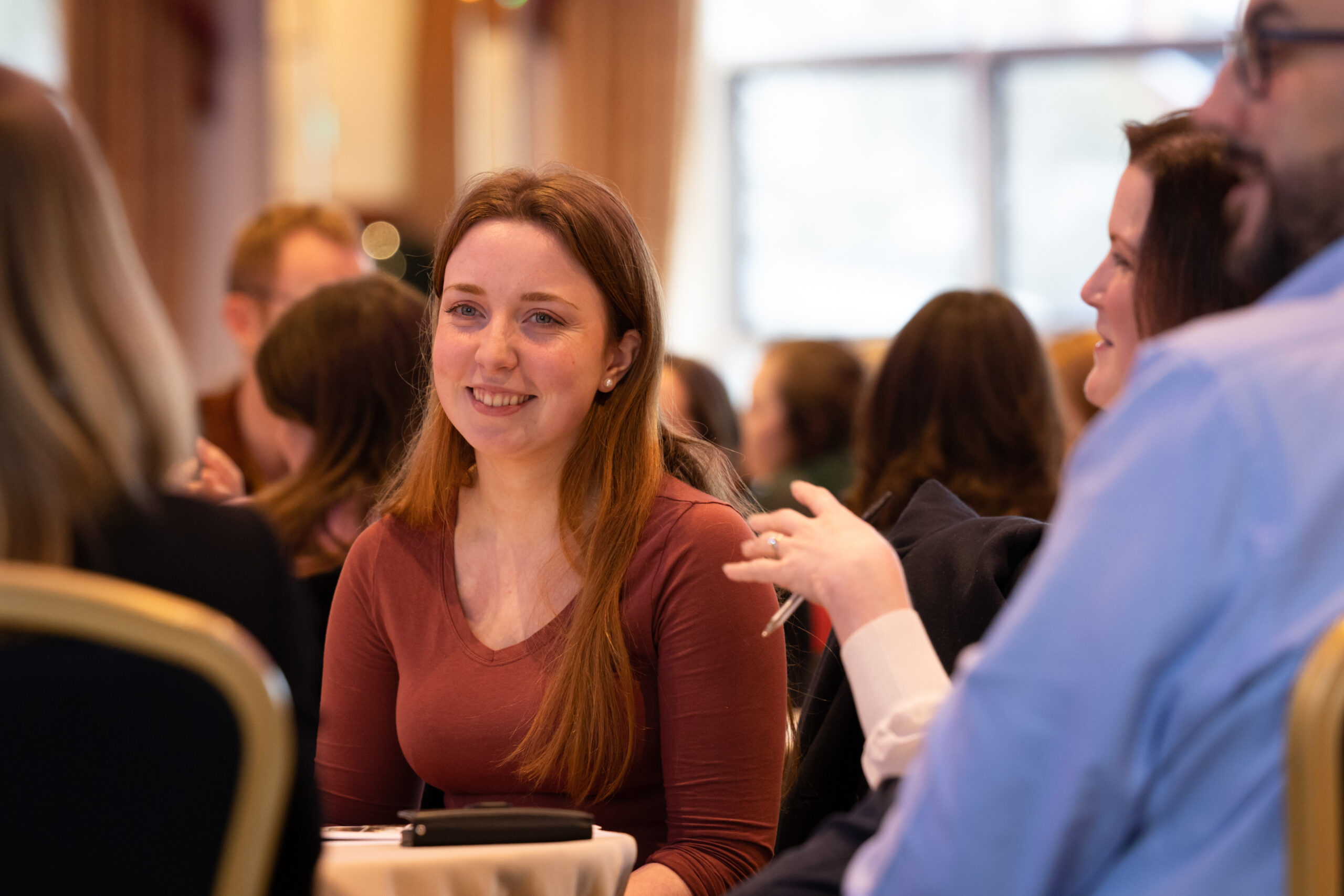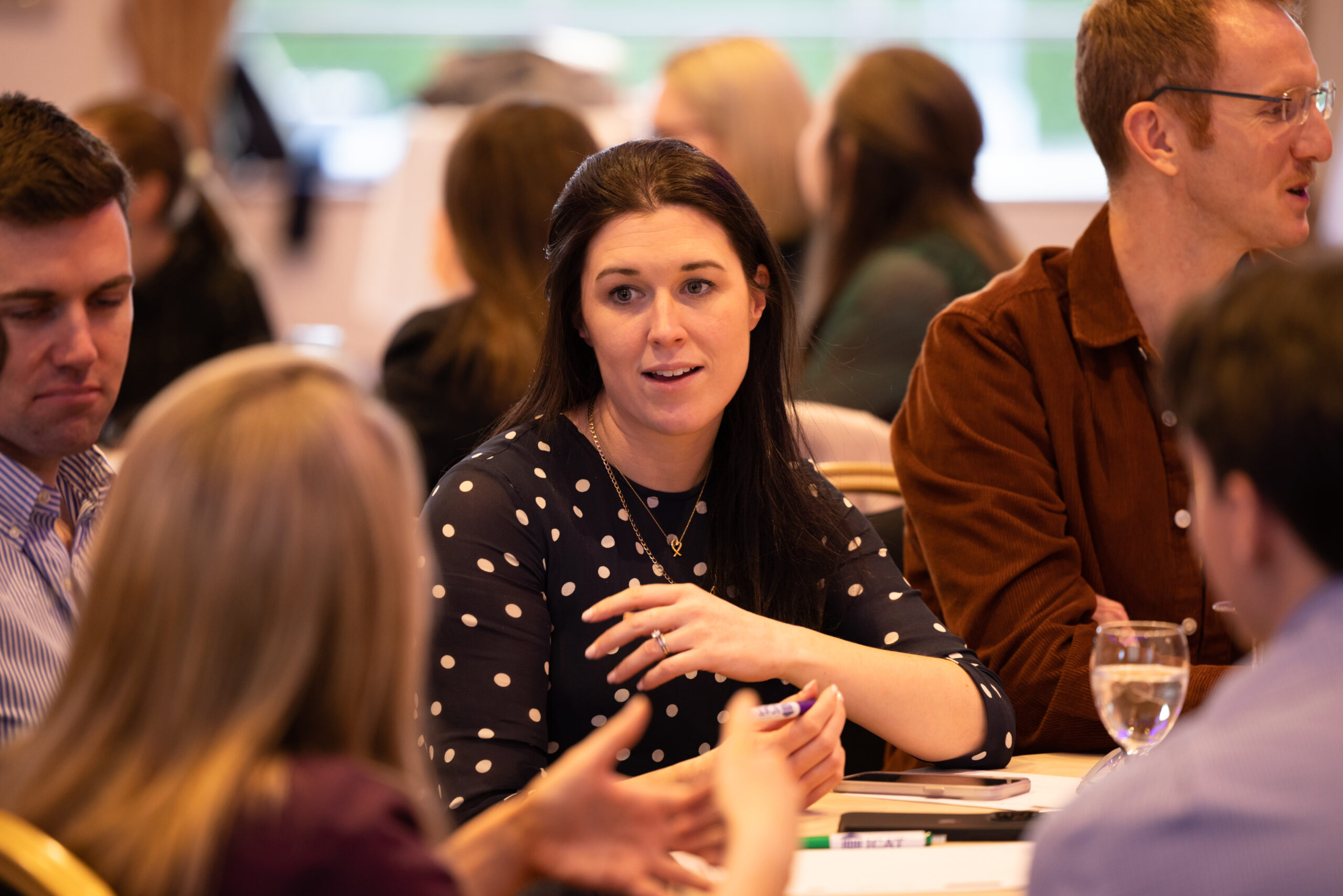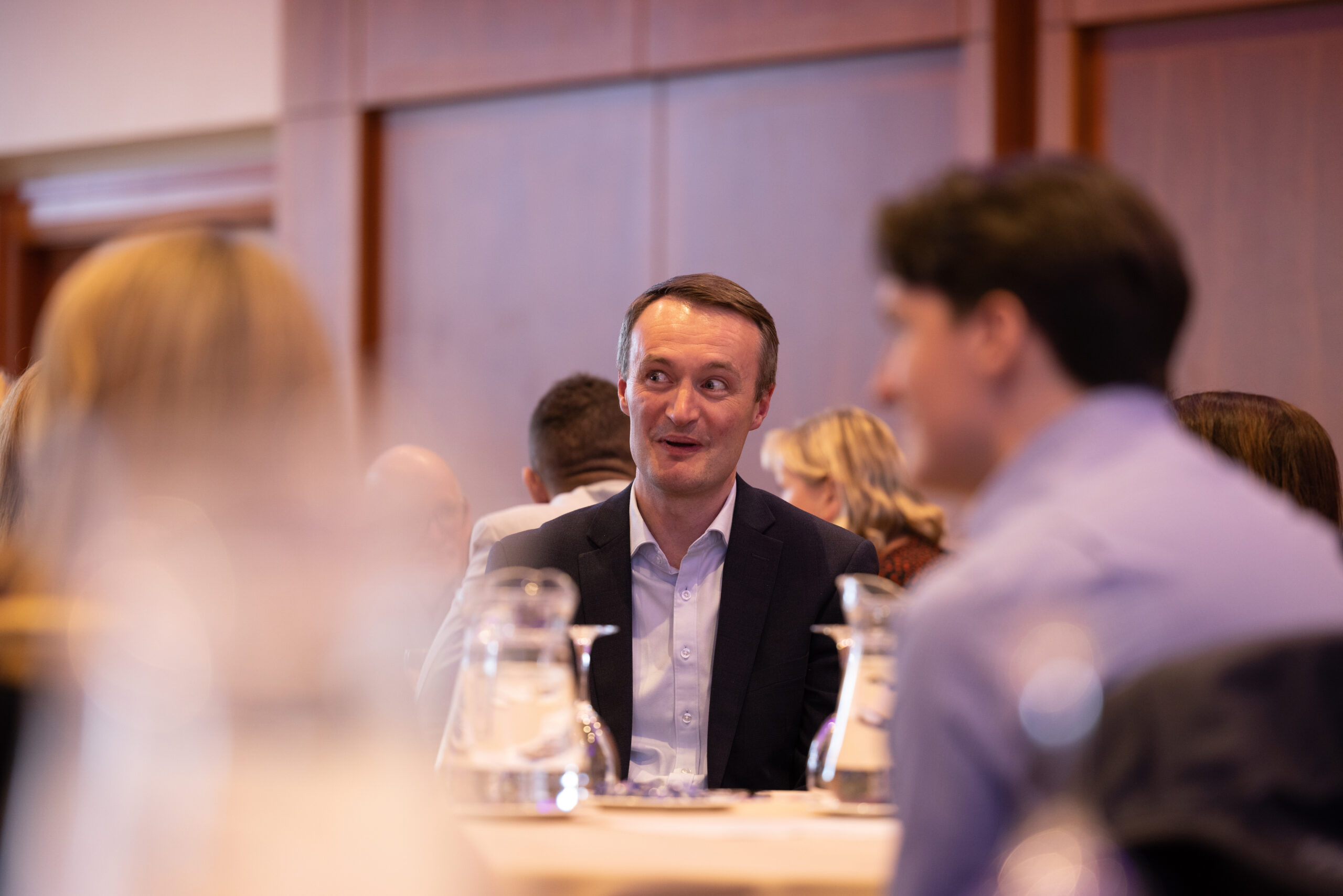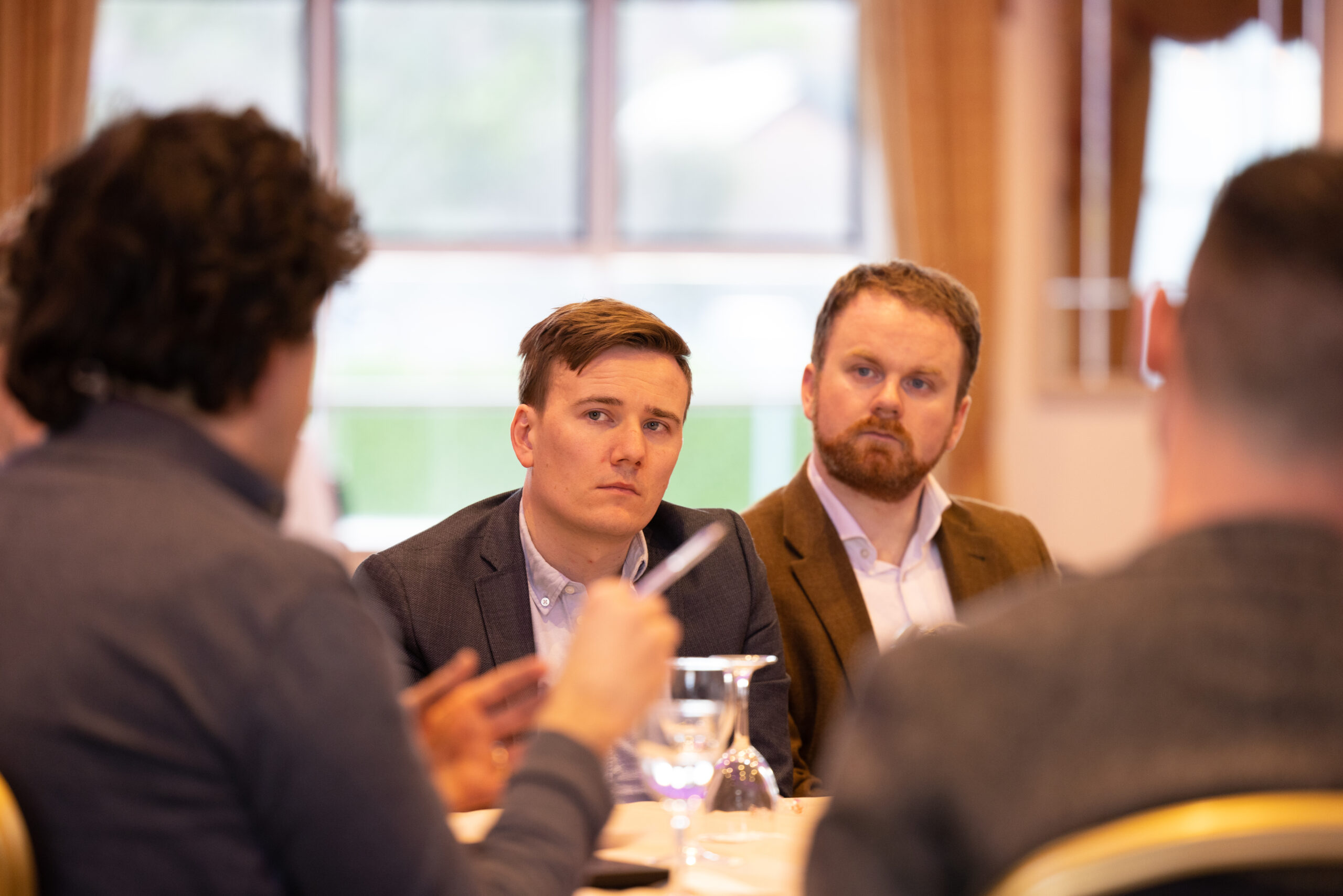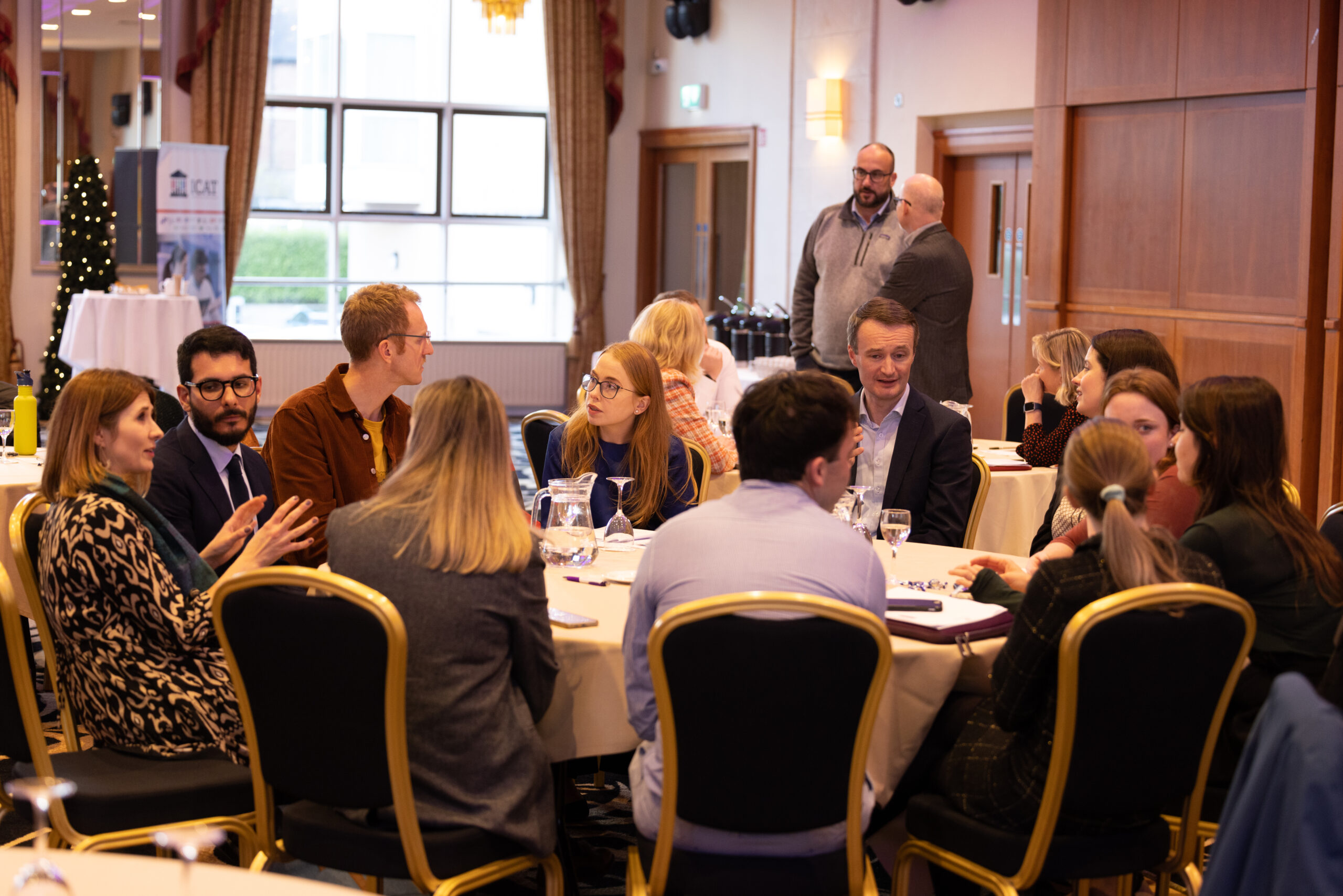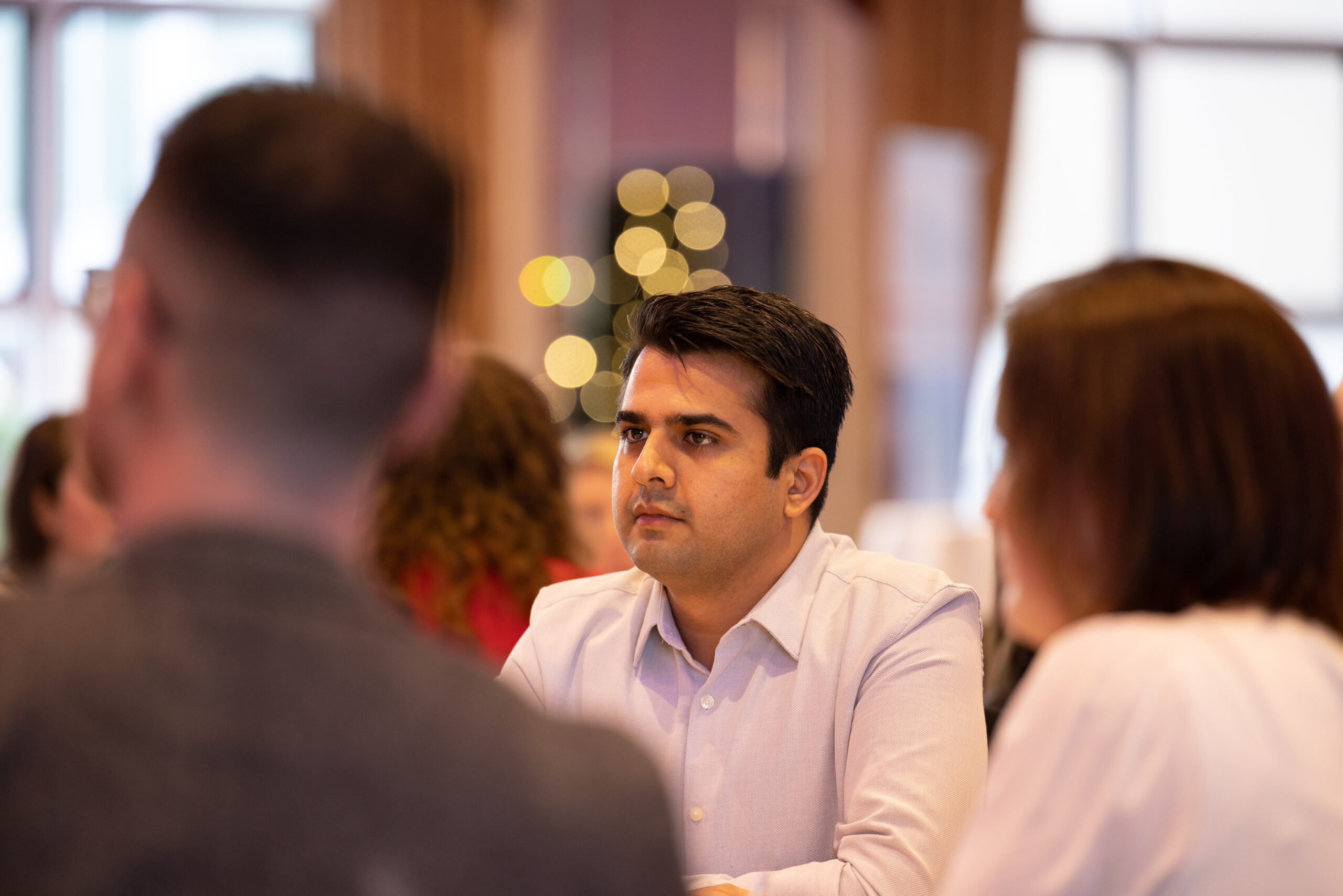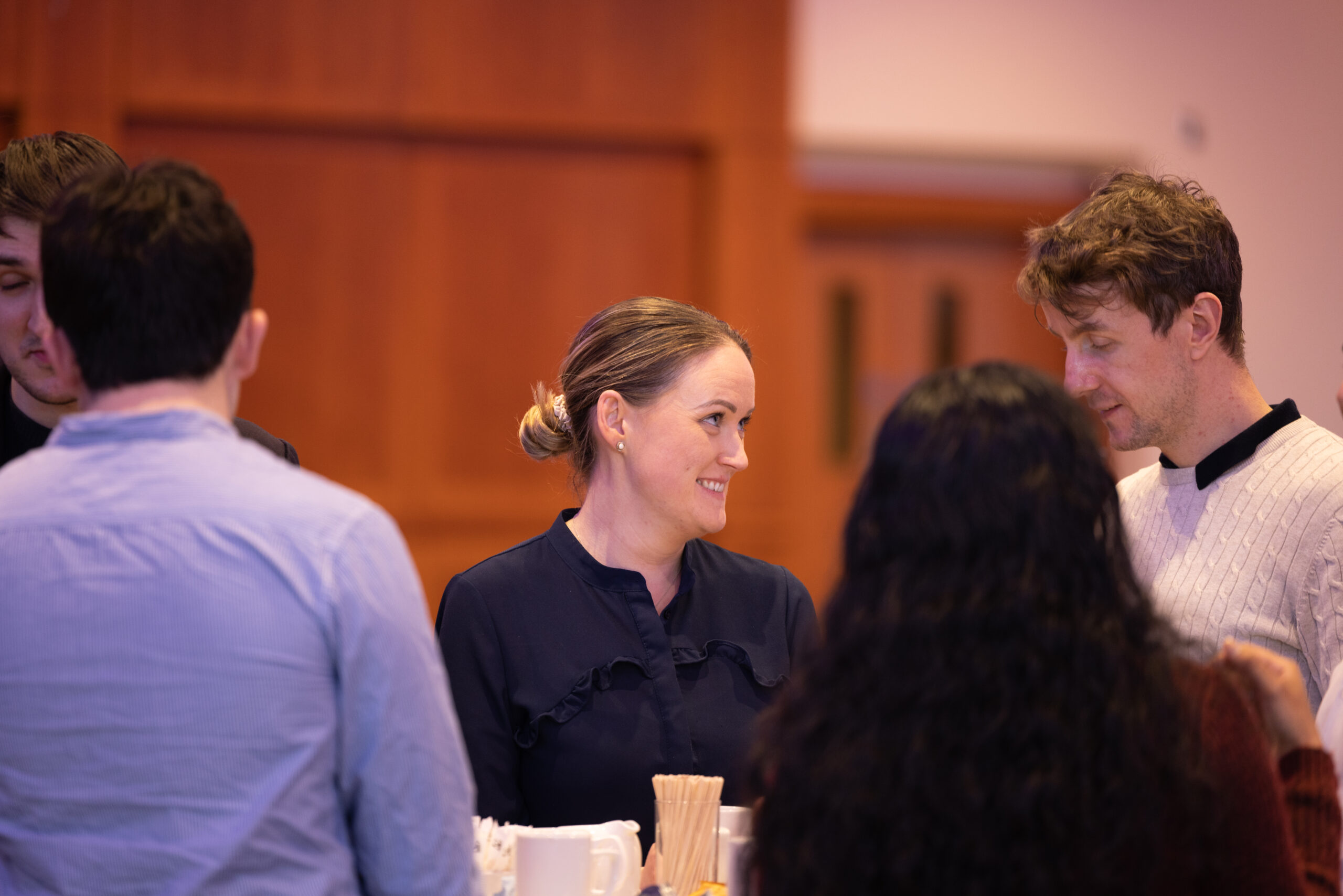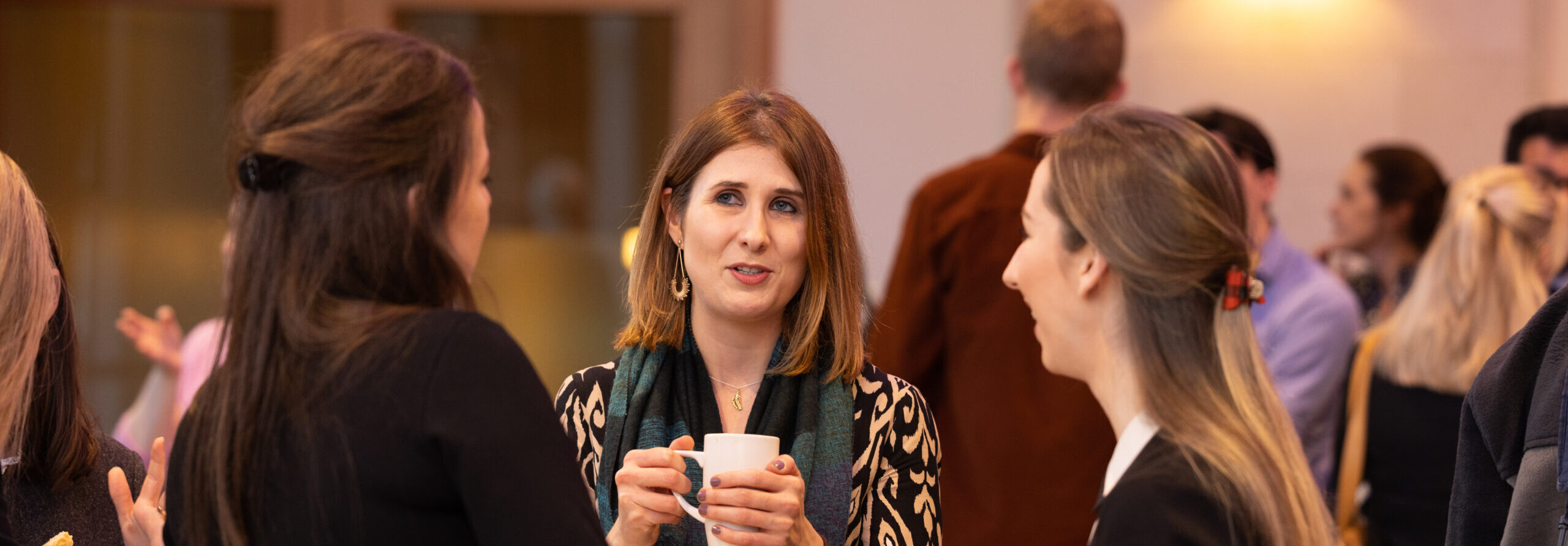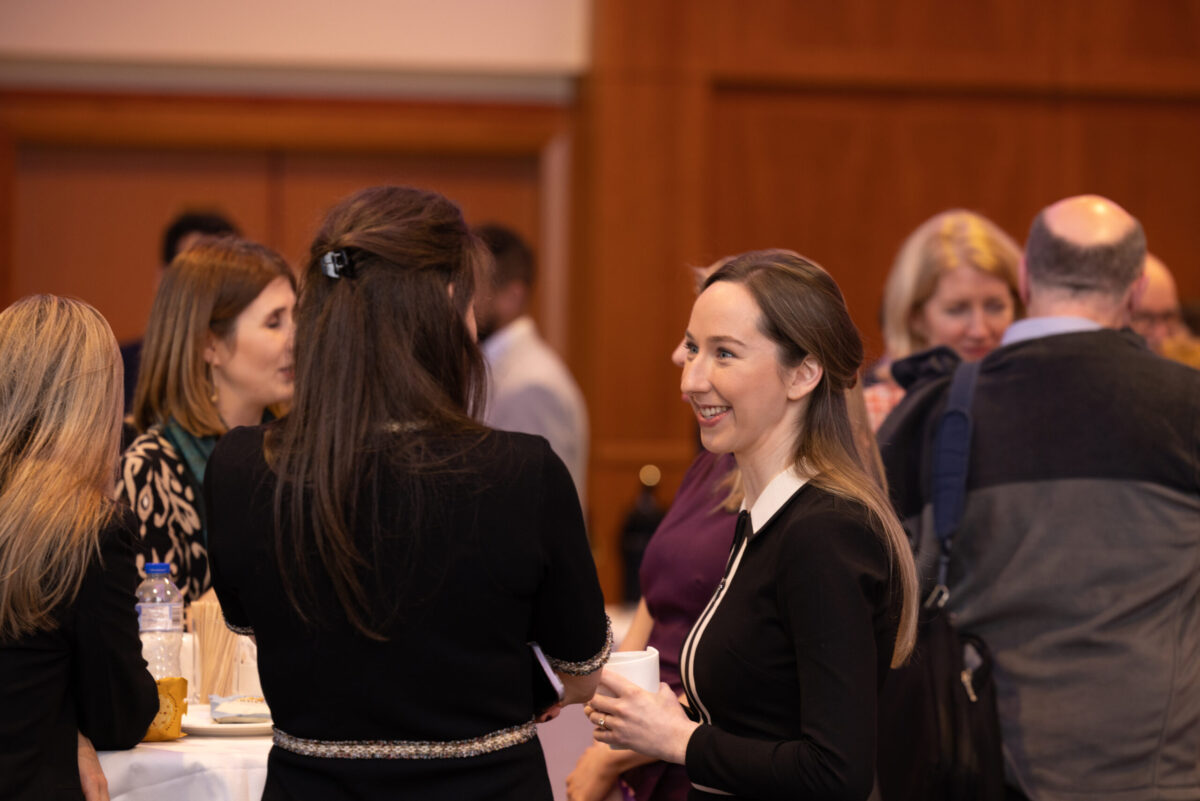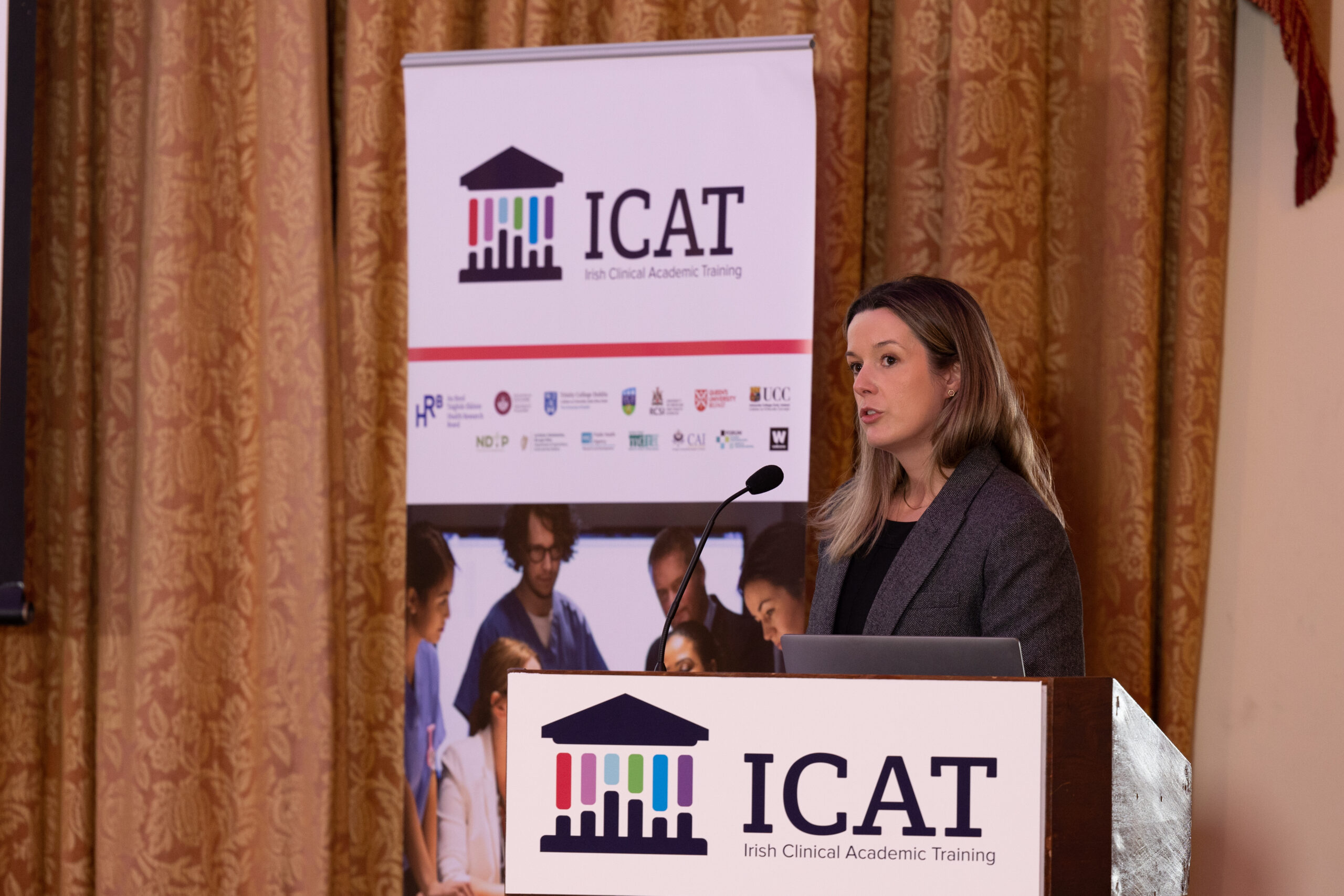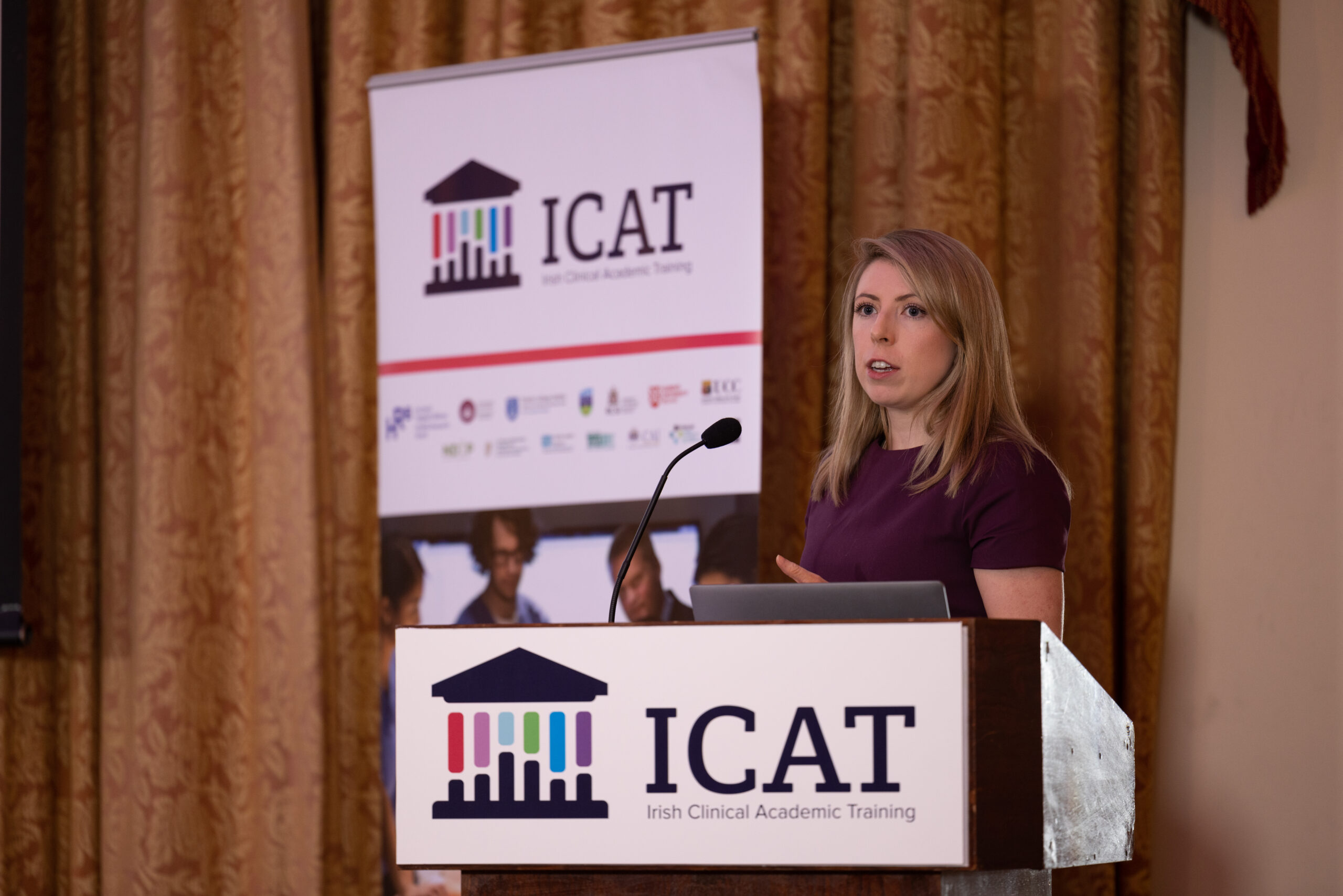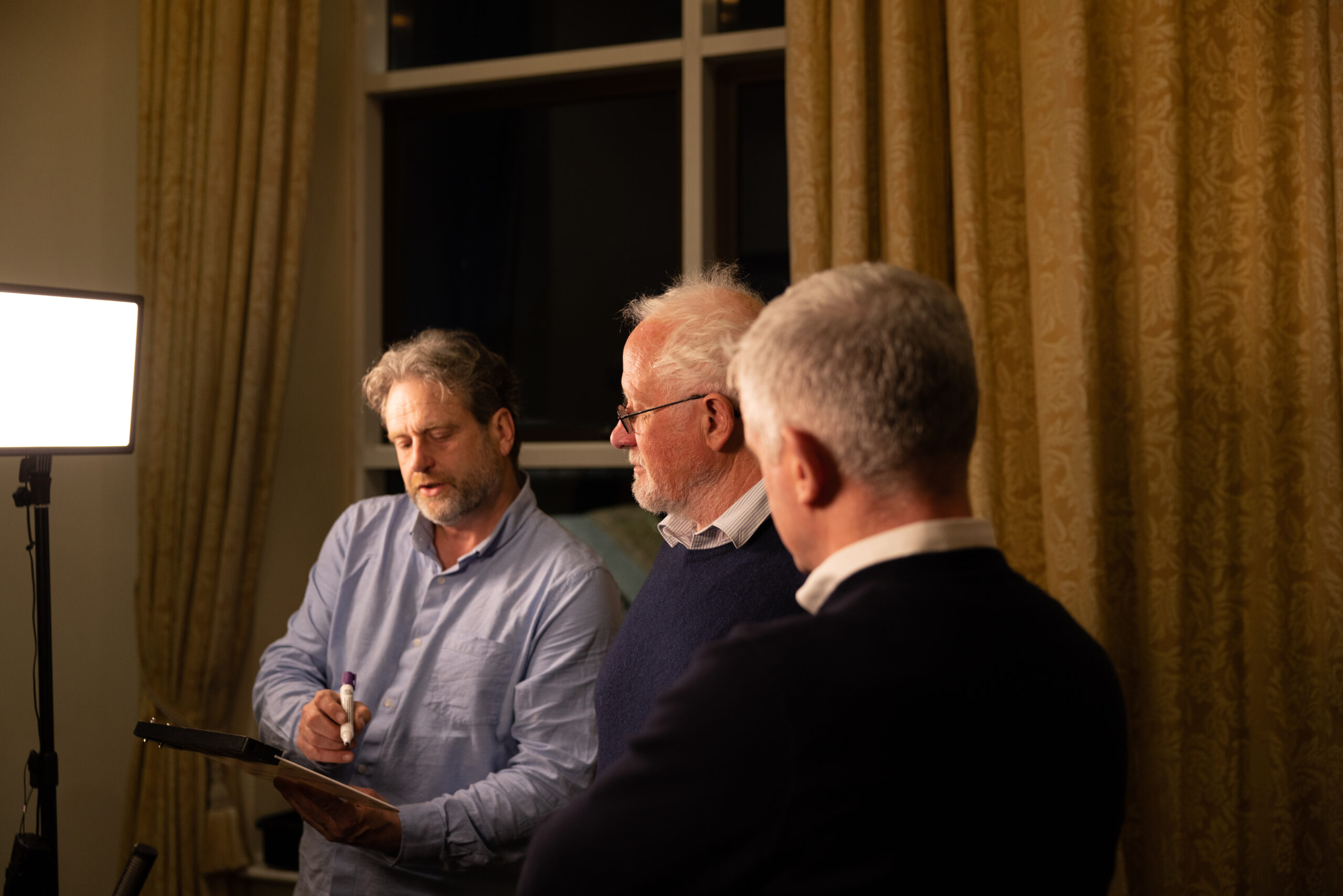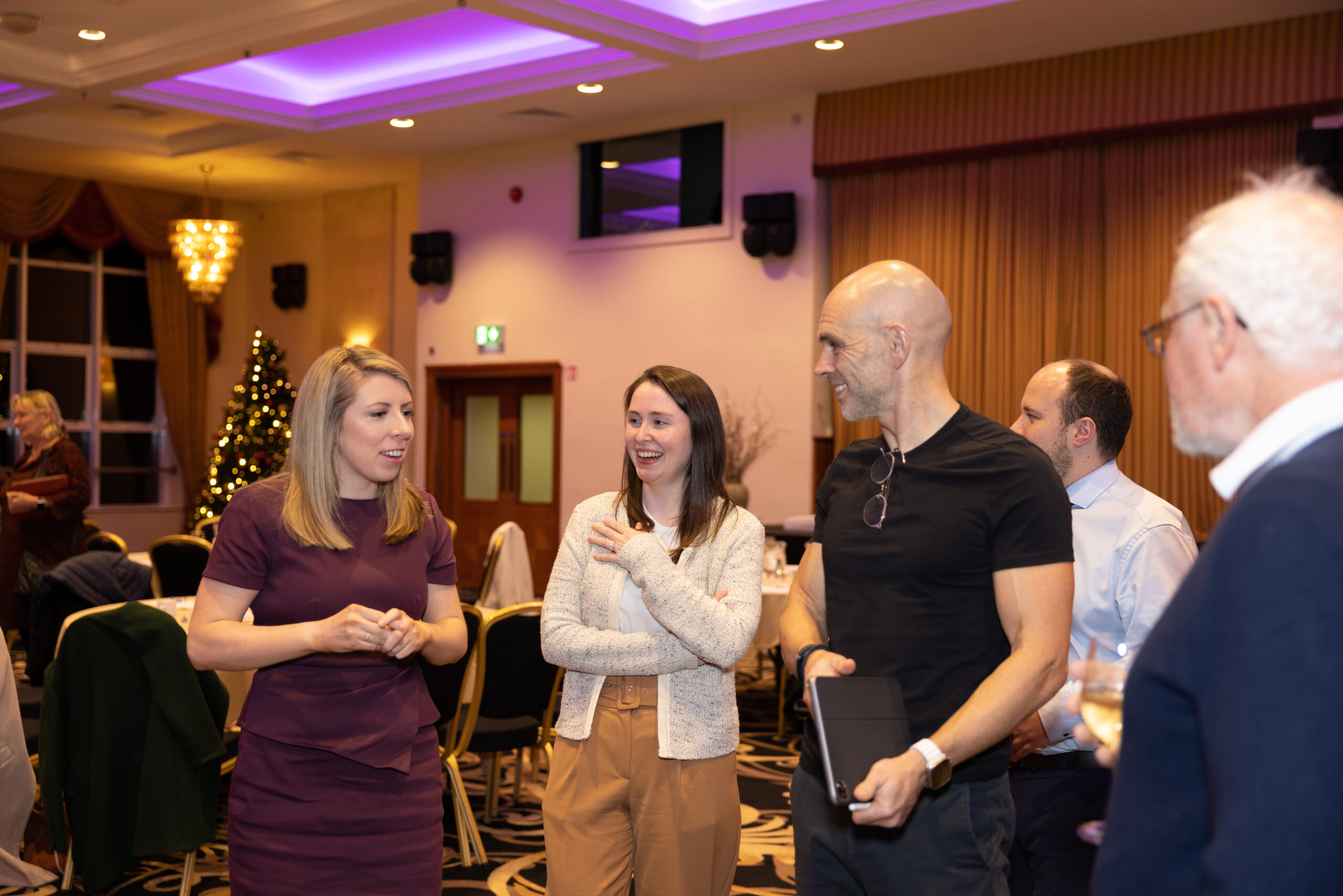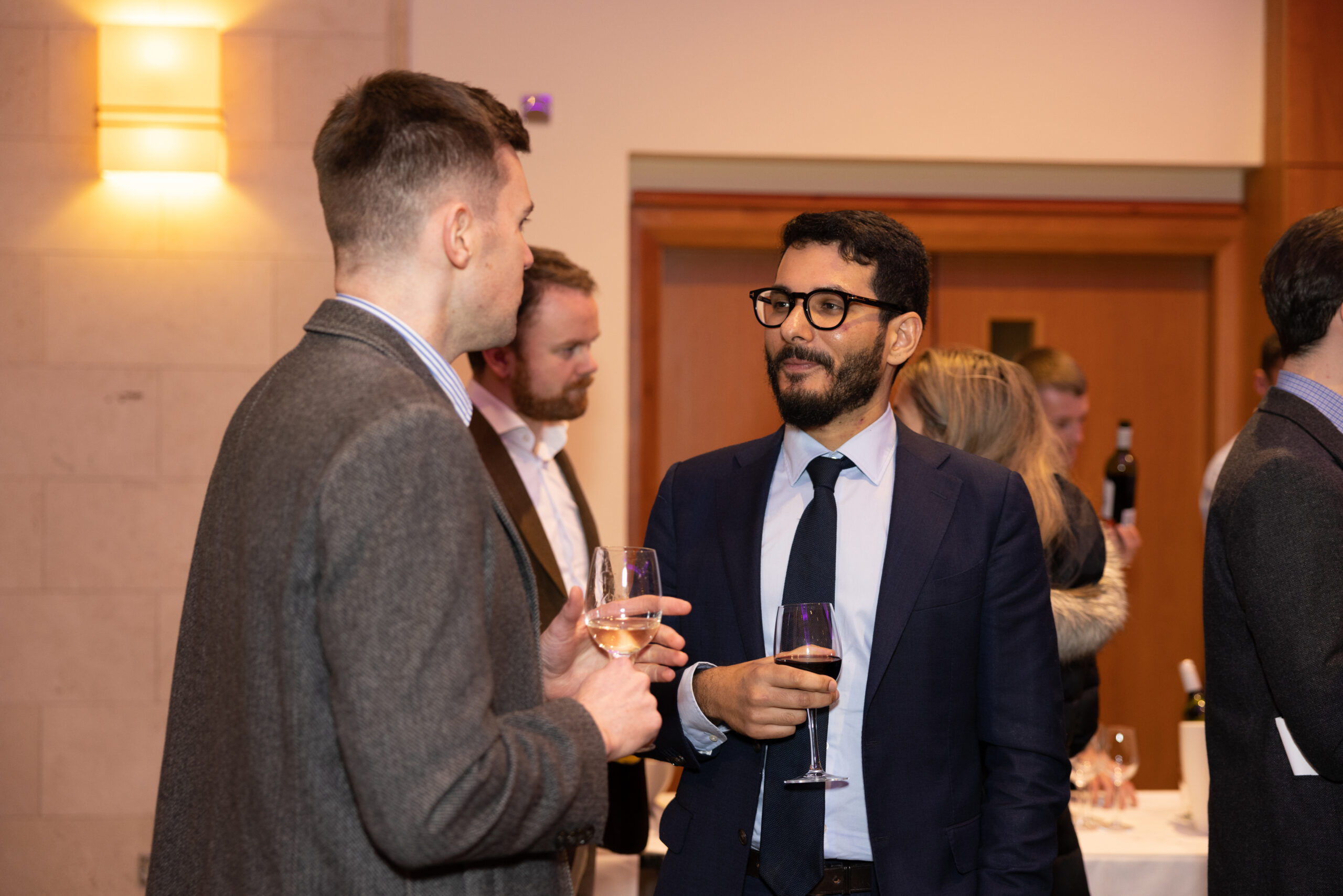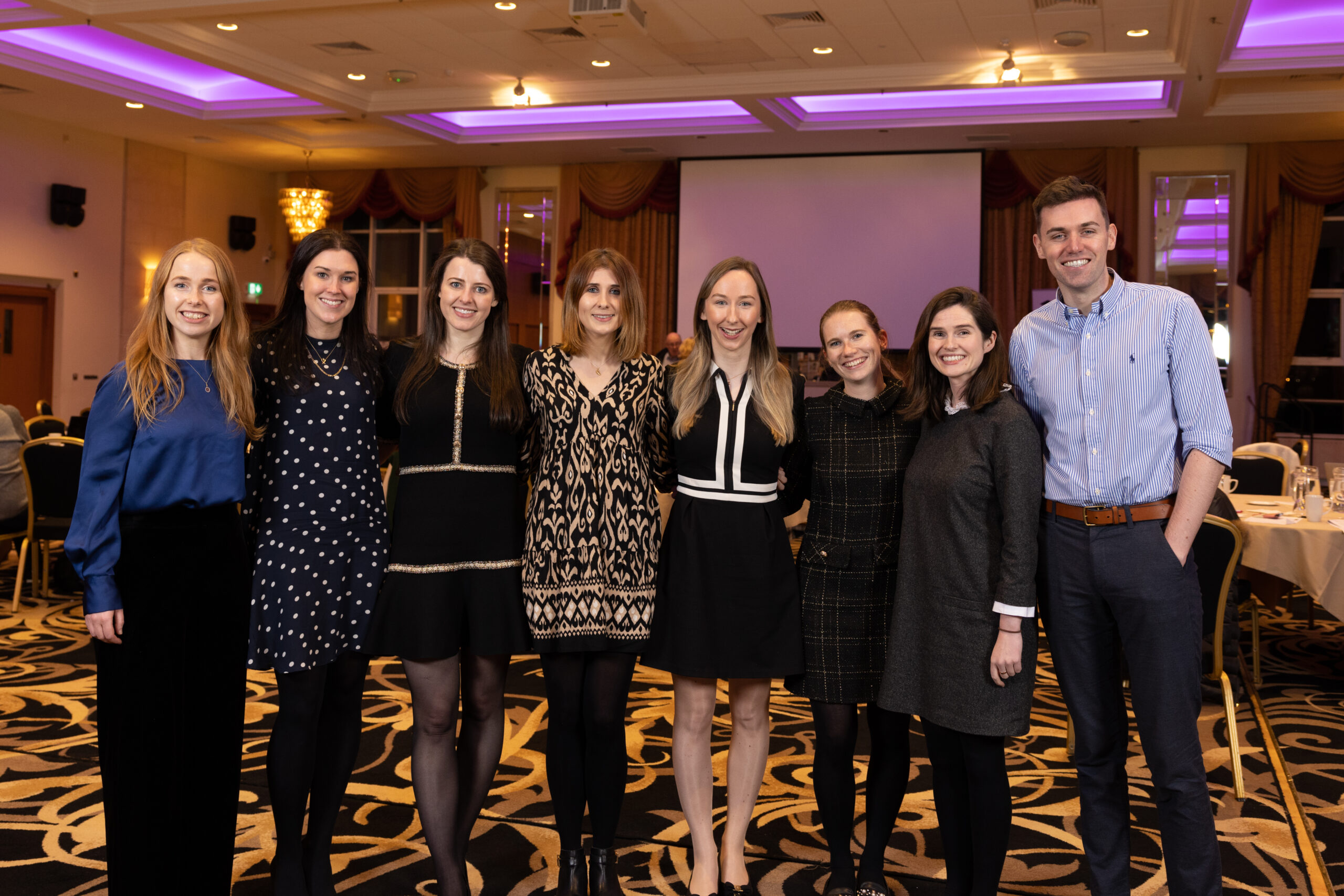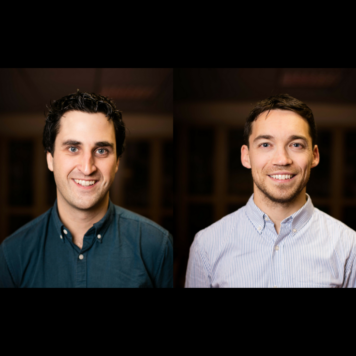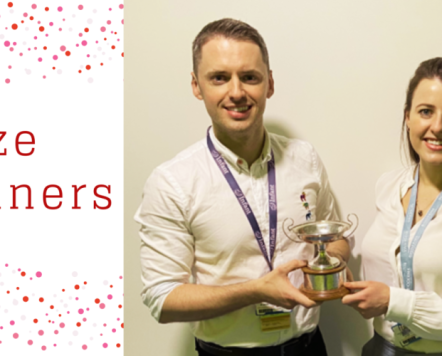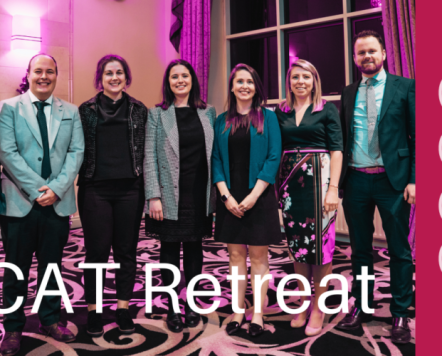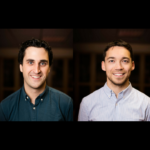
Two ICAT Fellows awarded Health Research Board (HRB) Clinician Scientist Postdoctoral Fellowships
October 26, 2023ICAT Retreat 2023
The 7th annual ICAT Retreat took place at the end of November in the seaside village of Malahide, County Dublin.
Artificial intelligence and imaging
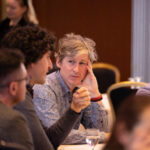 Our keynote speaker, Professor Paul Hurley, is the professor of Data Science at the Centre for Research in Mathematics and Data Science at Western Sydney University (WSU), as well as the Research Director of WSU's International Centre for Neuromorphic Systems. Before moving to Australia, Paul was a technical lead and senior research scientist at IBM Research in Zurich, Switzerland. He holds a PhD from EPFL in Lausanne, Switzerland, and is a graduate of the University of Galway. Paul specialises in imaging science and signal processing, with applications as diverse as ultrasound, radio astronomy, ECG and local gravity measurement.
Our keynote speaker, Professor Paul Hurley, is the professor of Data Science at the Centre for Research in Mathematics and Data Science at Western Sydney University (WSU), as well as the Research Director of WSU's International Centre for Neuromorphic Systems. Before moving to Australia, Paul was a technical lead and senior research scientist at IBM Research in Zurich, Switzerland. He holds a PhD from EPFL in Lausanne, Switzerland, and is a graduate of the University of Galway. Paul specialises in imaging science and signal processing, with applications as diverse as ultrasound, radio astronomy, ECG and local gravity measurement.
Paul gave us an overview of how AI and the use of sophisticated imaging can have applications for current medical research and can impact patient care in the future.
ICAT Fellow talks
The event kicked off with presentations from our year 1 (pre-PhD) ICAT fellows. These fellows were appointed in July 2023 to the pre-PhD year of the programme, in which they are predominantly working clinically, and have protected time to identify a supervisory team, develop a PhD proposal and submit this for internal and external review. The ICAT Retreat is an important part of the internal review process, with a Q&A after each talk and plenty of opportunity during the breaks to discuss their project plans during the 2-day event.
The PhD ICAT fellows participated in the Research Blitz, fast-paced sessions where each speaker gives a snapshot of their research in 3 minutes.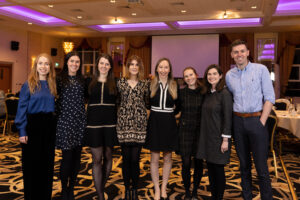
ICAT Pre-PhD Fellows, pictured from left; Dr Nicola Raftery, Dr Catherine Duane, Dr Lisa Kiely, Dr Alison Lee, Dr Eithne Nic an Ríogh, Dr Louise Kelly, Dr Sophie Duignan, Dr Vincent Healy.
Research Impact
We were delighted to welcome Sarah Bowman to the ICAT Retreat to share her insights into how you can evaluate and maximise your research impact.  Sarah has twenty years of experience as a public engagement and impact specialist, is co-author of the Engaged Research Report: Society & Higher Education Working Together to Address Grand Societal Challenges and co-creator of the Engaged Research Framework and Planning for Impact Framework with Campus Engage. She also co-authored the 2022 Researcher Impact Framework. Sarah recently joined Blue Zones to serve as their Vice President of Policy Operations and Development.
Sarah has twenty years of experience as a public engagement and impact specialist, is co-author of the Engaged Research Report: Society & Higher Education Working Together to Address Grand Societal Challenges and co-creator of the Engaged Research Framework and Planning for Impact Framework with Campus Engage. She also co-authored the 2022 Researcher Impact Framework. Sarah recently joined Blue Zones to serve as their Vice President of Policy Operations and Development.
Panel discussion - Developing a clinical academic career
We invited panel members Professor Eileen Parkes, Professor Emma Wallace and Dr Conor Judge to speak about their experiences developing careers in clinical academia, focusing on the immediate post-PhD space.
Eileen Parkes is Associate Professor at the University of Oxford, Medical Oncologist, Wellcome Trust Clinical Career Development Fellow and lead for the Oxford Experimental Cancer Medicine Centre. Prof Emma Wallace is a GP in north Cork city and Chair of General Practice at University College Cork. Dr Conor Judge is an ICAT alumnus, Consultant Nephrologist, Electronic and Computer Engineer, PhD in Epidemiology and Biostatistics, and Senior Lecturer in Applied Clinical Data Analytics at the University of Galway.
The discussion was facilitated by Professor Bernadette McGuinness (Queen's University Belfast), Professor Michael O'Reilly (RCSI) and Professor Conall Dennedy (University of Galway).
Pictured from left: Prof. Michael O'Reilly, Prof. Bernadette McGuinness, Prof. Emma Wallace, Prof. Eileen Parkes, Dr Conor Judge, Prof. Conall Dennedy.
The topics covered included the importance of mentorship and sponsorship throughout your career; using clinical fellowships with protected research time as opportunities to apply for research funding post-PhD; applying for small grants during your PhD to build up your CV; the importance of conferences and meetings for networking and collaboration; attending information sessions about grant calls; and reading grant terms carefully to ensure that applying for one will not make you ineligible to apply for another.
Small Group Research Discussions
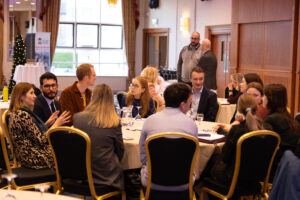
A new session in 2023 focused on structured small group research discussions, facilitated by members of the ICAT executive team and invited guests.
Attendees were encouraged to bring questions topical to their research and join the discussions themed around these topics: Epidemiology/Population Studies; In vitro/Laboratory Research; Machine Learning/Artificial Intelligence; In vivo models; Clinical Research.
Prize winners
ICAT Fellow & Anatomic Veterinary Pathologist
Talk: Gram-negative bacteria and the progression of feline oral squamous cell carcinoma: a comparative investigation into the role of lipopolysaccharide, toll-like receptor 2 and toll-like receptor 4 in tumour progression.
ICAT Fellow & SpR in Neurology
Talk: Reporting a novel paraneoplastic encephalitis associated with calmodulin kinase-like vesicle associated (CAMKV)-IgG antibody.
ICAT Fellow & Oral & Maxillofacial Pathology trainee
Talk: A strategic approach to establishing a new regional head and neck cancer patient and public involvement group in Northern Ireland.
ICAT Fellow & SpR in Surgical Ophthalmology
Talk: Machine learning for the investigation of optic neuropathies.
ICAT Fellow & SpR in Haematology
Talk: Targeted Inhibition of Phosphodiesterase (PDE) 4 in Endothelial Cells as a Novel Therapy for Von Willebrand disease

